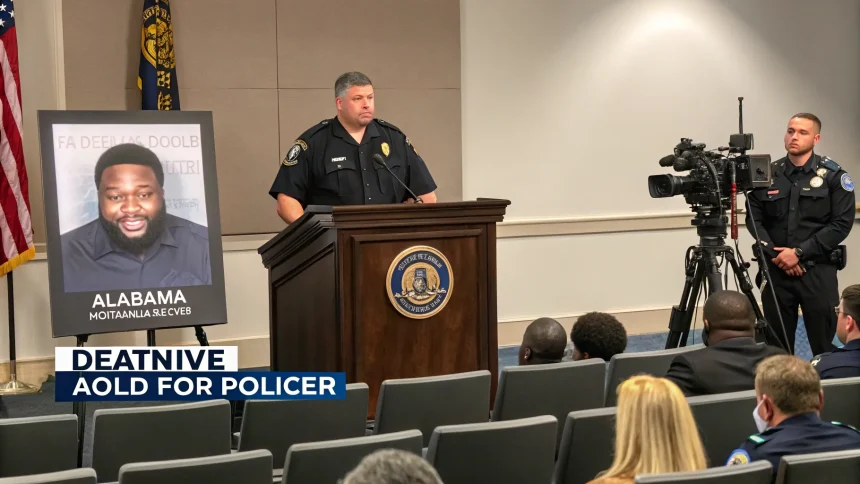A police department in Alabama has issued a statement denying any wrongdoing in connection with the death of Phillip Reeder, who died while in police custody in August 2024. Reeder was reportedly handcuffed at the time of his death, raising questions about the circumstances surrounding the incident.
The case has drawn attention from local community members and civil rights advocates who are seeking answers about what happened during Reeder’s interaction with law enforcement. The police department maintains that officers followed proper protocols during the arrest and subsequent detention.
The Incident and Police Response
According to available information, Reeder died while restrained with handcuffs during an encounter with police officers. The exact location and circumstances that led to his arrest have not been fully disclosed in official statements.
In their denial of wrongdoing, the department indicated that their officers acted within departmental policy guidelines. A spokesperson for the department stated that an internal review of the incident was conducted, which they claim supports their position that no improper actions were taken by the officers involved.
The department has not released body camera footage or detailed information about the medical cause of death, citing an ongoing investigation.
Community Concerns and Calls for Transparency
The death of a handcuffed individual in police custody has sparked concerns among local residents and civil rights organizations. Several community groups have called for:
- Release of body camera footage from the officers involved
- An independent investigation into the circumstances of Reeder’s death
- Disclosure of the medical examiner’s findings
- Information about whether proper medical attention was provided
Civil rights attorneys in the area have questioned the department’s lack of transparency, suggesting that the denial of wrongdoing is premature without a complete external review of the evidence.
Legal and Procedural Questions
Deaths in police custody raise significant legal questions about use of force, restraint techniques, and the duty of care owed to detained individuals. When someone dies while handcuffed, particular scrutiny falls on whether proper monitoring occurred and if medical distress signals were recognized and addressed.
“Any time someone dies while restrained, there are serious questions that need answering,” said a local civil rights attorney who has been following the case. “The fact that Mr. Reeder was handcuffed means he was under the complete control and care of officers at the time of his death.”
The case may face additional review from state or federal authorities. The Department of Justice has previously investigated in-custody deaths in other jurisdictions when questions arise about potential civil rights violations.
Similar Cases Nationwide
Reeder’s death occurs against a backdrop of heightened national attention to in-custody deaths. Over the past decade, numerous cases involving deaths of restrained individuals have led to policy changes in police departments across the country.
These reforms have often included enhanced training on recognizing medical emergencies, proper restraint techniques, and mandatory medical checks for individuals in custody. Whether the Alabama department in question had implemented such measures remains unclear.
The family of Phillip Reeder has not made public statements about their loved one’s death or potential legal action. However, in similar cases, families have pursued civil lawsuits against police departments alleging excessive force or failure to provide medical care.
As the investigation continues, community members await more information about the circumstances that led to Reeder’s death while in police custody. The department’s denial of wrongdoing has not satisfied calls for greater transparency and accountability in the case.









